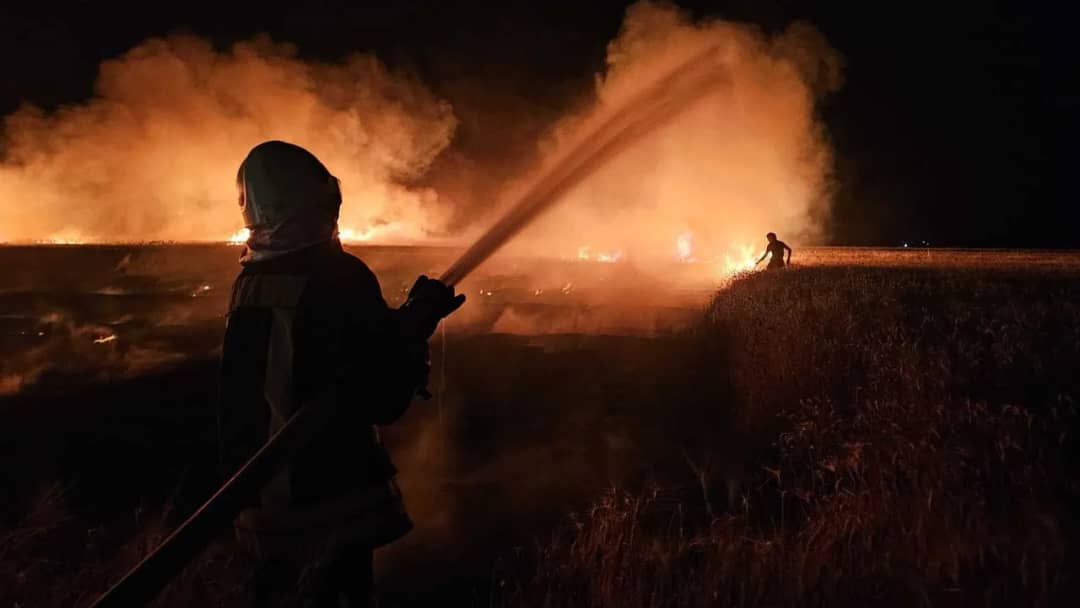The White Helmets succeed in extinguishing dozens of fires amid warnings of a dangerous summer season.

Syrian Civil Defense teams, known as the "White Helmets," in collaboration with firefighting teams, managed to control over thirty fires that broke out last Friday in various Syrian regions, including the Syrian coast. Some of these fires caused material damage, while others resulted from the debris of rockets and drones due to military tensions in the area.
A statement from the Civil Defense indicated that the teams dealt with various fires, including forest fires in coastal areas, fires in dry grasslands and agricultural areas, as well as house fires that led to a citizen experiencing respiratory distress before being assisted. Interventions also included fires in plastic warehouses and damaged vehicles.
In a related context, the teams responded to two fires caused by military debris in the villages of Rafid in Quneitra Governorate and Tasil in Daraa countryside, highlighting the dual consequences of armed conflict and environmental disasters.
As part of preparations for the summer fire season, the White Helmets, in cooperation with the Ministry of Emergency Situations, announced an emergency plan aimed at minimizing the impact of fires on the agricultural and forest sectors, amidst increasing warnings of rising temperatures and drought waves.
The organization warned that the increasing fires pose additional pressure on the agricultural sector, already suffering from the effects of the ongoing war for 14 years, emphasizing that any new fire means severe economic losses for farmers and further deterioration in food security.
The plan relies on enhancing coordination between governmental and local institutions, establishing sub-operation rooms and equipped response centers in high-risk areas. The campaign also includes intensive awareness programs for local communities about fire risks and prevention methods.
Statistics from the Civil Defense revealed their teams dealt with thousands of fires since the beginning of the year, with over a thousand house fires and hundreds of fires in agricultural and forest areas, consuming vast areas of land and crops.
The organization affirmed that these numbers confirm the ongoing nature of the fire hazard, no longer limited to dry seasons but increasingly threatening residential areas and essential life facilities.
In conclusion, the White Helmets appealed to the international and local community to provide urgent support to enhance their capabilities in facing this escalating danger, expressing concern over the limited resources available to address the significant challenges.
They emphasized that combating fires requires the collective efforts of all parties, from official institutions to citizens, in a collective endeavor to minimize human and material losses amid the difficult circumstances the country is going through.